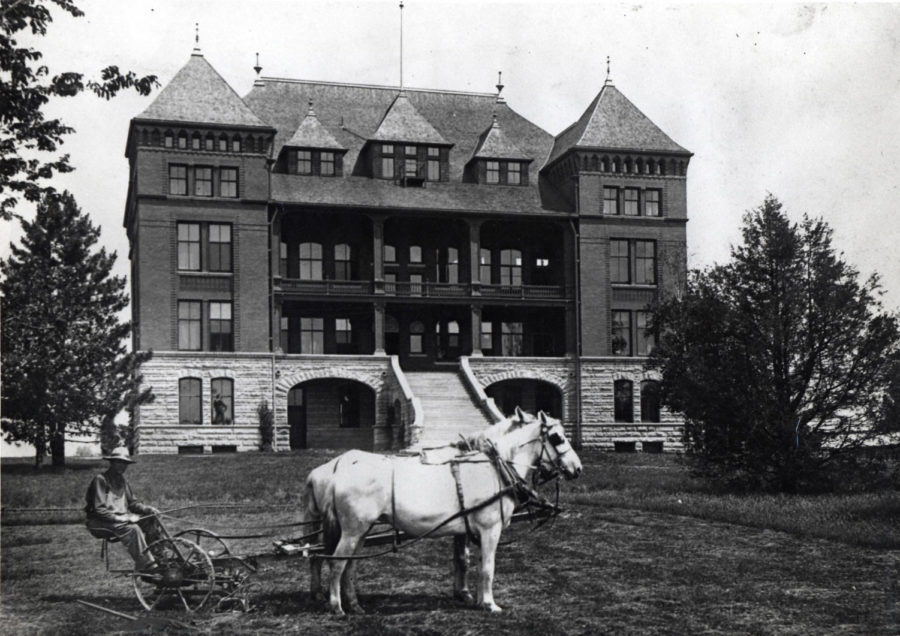Letter: Catt Hall in a middle ground
July 13, 2020
Perhaps the discussion about Catt Hall seems to leave no middle ground for reflection because the issue is presented in such stark contrasts — either Carrie Chapman Catt was a horrific racist whose memory should be erased or she was a courageous suffragist whom we should uphold as a model. The exclusion of the possibility that she might have been a complex personality, fraught with contradictions, seems to have become lost. While this reflects the national mood calling for a terror modeled on either McCarthy or Robespierre, as a university, we should stand against any fundamentalism.
Perhaps taking a look at another personage dear to the university might make that clear. President Beardshear was clearly an influential person, and as such, was appointed to the U.S. Commission on Indian Affairs in 1897.
For several years, he signed off on policy proposals that would deeply impact Native peoples’ lives — and not in a good way. What is his legacy? Were well-meaning, but willfully ignorant colonial administrators of Native nations bad people? The hegemonic discourse of individual property rights, progress, Social Darwinism and Manifest Destiny has been so ingrained in this nation and is still so beneficial to all non-Native people that all of a sudden, the boundaries of oppressed and oppressor begin to shift. Can those oppressed in one context be oppressors in another? Complexity abounds.
William Temple Hornaday had included so much casual racism against Native peoples in his writing on conservation matters that his actions in the Bronx Zoo are a footnote. Anybody reading him for the past 130 years knew that. But the same is true of many other conservationists — a close reading of Aldo Leopold’s arguments for conservation or skimming of Theodore Roosevelt’s racist tirades against American Indians and for Manifest Destiny should leave no doubt about that.
What American Indian studies demonstrates is that people with good intentions can cause irreparable harm when they do not or cannot listen. At this moment in time, we should all take a lesson from that.
I am grateful the university is now establishing a process to provide guidelines on how to proceed. I understand many people simply want “something done” — if you want to see how doing things without thought or reflection, simply acting on the absolute knowledge that one is right, can destroy whole communities, take no further look than Native histories and presents.
I agree that superficial talk to sweep things under the carpet has no place. We need the courage to look at ourselves, the wisdom to identify the roots of the systemic oppression and the bravery to tear them out. The key here, though, is wisdom.
Again, a look at Native systems of governance and justice might teach us well. So would a look at other countries.
My hope is that we can have the wisdom to keep this community together when processes of dialogue and conversations are established and we confront the roots of intolerance and fundamentalism within this institution — and within each one of us.
Sebastian Braun is the director of American Indian studies at Iowa State University.







